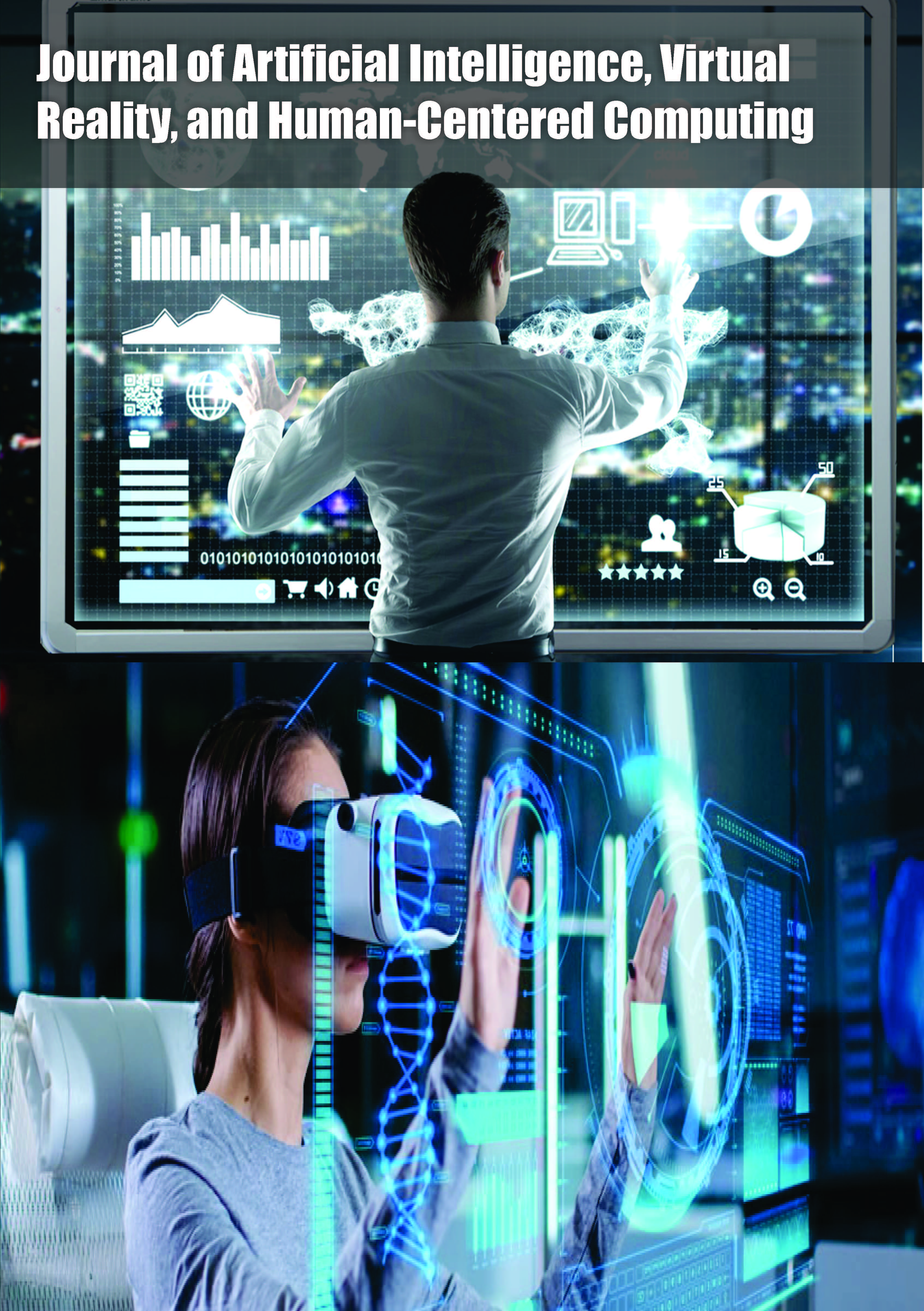Journal of Artificial Intelligence, Virtual Reality, and Human-Centered Computing

Aim and Scope
The Journal of Artificial Intelligence, Virtual Reality, and Human-Centered Computing is committed to publishing high-quality, peer-reviewed research in the interdisciplinary fields of AI, immersive technologies, and human-computer interaction. The journal welcomes contributions that explore both theoretical foundations and practical applications, ensuring a comprehensive understanding of intelligent computing in various domains.
Key focus areas include:
Artificial Intelligence and Machine Learning: Studies on deep learning, reinforcement learning, AI-driven automation, and predictive analytics that enhance decision-making and problem-solving across industries.
Virtual and Augmented Reality: Research on immersive environments, extended reality (XR) applications, and advancements in VR/AR hardware and software.
Human-Centered Computing: Investigations into user experience (UX), cognitive ergonomics, AI-assisted accessibility tools, and human-computer interaction methodologies.
AI Ethics and Responsible AI: Discussions on bias in machine learning models, data privacy, AI governance, and policy frameworks ensuring ethical AI development.
AI in Healthcare and Medicine: Applications of AI and VR in diagnostics, patient care, rehabilitation, and medical training.
Computational Social Science and AI-driven Behavior Analysis: Research on sentiment analysis, AI in social media, and the role of intelligent systems in shaping human interactions.
AI for Creative Industries: AI-generated art, music, game design, and interactive storytelling.
Emerging Trends and Future Technologies: Explorations of quantum computing, brain-computer interfaces, neuromorphic computing, and next-generation AI architectures.
The journal is committed to fostering interdisciplinary research that advances AI’s role in society, making intelligent and immersive technologies more accessible and beneficial. With a rigorous peer-review process, it ensures that published studies contribute significantly to academic discourse and technological progress.

